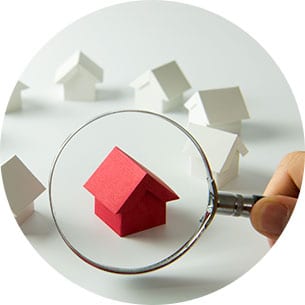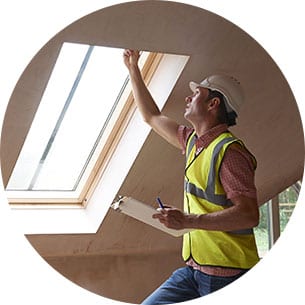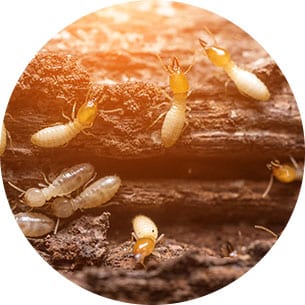Pests are unwelcome guests that can cause significant damage to your property and affect your family’s health. Unfortunately, they are also challenging to keep out of your home, especially if you live in an area with high pest activity. That is why it is essential to schedule regular pest inspections to catch infestations before they cause extensive damage.
A pest inspection involves a thorough examination of your home’s interior and exterior by a licensed pest control professional to check for signs of infestations and conditions that may lead to future infestations. This article provides valuable tips and tricks to help you prepare your home for a pest inspection.
Why Is Pest Inspection Important?
Pest inspection is essential for the health and safety of your family and property. It is necessary to prevent infestations that can cause damage to your home and put your family’s health at risk. Here are some reasons why pest inspection is important:
- Early Detection of Pest Infestations: Pest inspections allow you to detect infestations early, before they become a significant problem. Early detection makes it easier to treat and prevent the spread of pests.
- Protect Your Home from Damage: Pests such as termites, rodents, and carpenter ants can cause significant damage to your home’s structure and foundation. A pest inspection can identify signs of damage caused by pests and help you take necessary action to prevent further damage.
- Ensure the Safety of Your Family: Pests can carry diseases and allergens that can pose a risk to your family’s health. A pest inspection can help identify potential health risks associated with pests and take necessary steps to protect your family.
- Maintain a Healthy Living Environment: Pests can cause an unsanitary living environment, which can be hazardous to your health. A pest inspection can help identify potential health hazards associated with pests and take necessary action to create a clean and healthy living environment.
- Compliance with Local and State Regulations: Many states and localities require pest inspections before the sale or purchase of a property. A pest inspection can help ensure that your property meets the necessary requirements for compliance with local and state regulations.
How to Prepare Your Home for a Pest Inspection
Preparing your home for a pest inspection involves several essential steps, including:
- Clean and declutter your home: A clean and organized home makes it easier for the pest control professional to identify signs of pest infestations. Remove clutter from the floors, counters, and tabletops, and vacuum carpets and rugs thoroughly.
- Repair leaks and cracks: Pests can enter your home through small cracks and crevices. Seal any gaps around doors and windows, and repair leaky pipes, faucets, and appliances.
- Trim overgrown plants and trees: Overgrown plants and trees provide pests with easy access to your home. Trim them regularly to prevent pests from using them as a bridge to enter your home.
- Store food properly: Pests are attracted to food, so store food in airtight containers and keep them off the floor. Avoid leaving pet food and water bowls out overnight, and clean them regularly.
- Remove standing water: Standing water provides a breeding ground for pests, including mosquitoes. Empty any standing water around your home, such as in flower pots, gutters, and birdbaths.
What to Expect During a Pest Inspection
During a pest inspection, a licensed pest control professional will thoroughly examine your home’s interior and exterior. They will look for signs of pest infestations, such as droppings, damage to wood and furniture, and nests. They will also check for conditions that may lead to future infestations, such as standing water, leaks, and cracks.
The pest control professional may use tools such as moisture meters, borescopes, and infrared cameras to detect pests hiding behind walls or in other inaccessible areas. They may also use baits and traps to determine the type and extent of any infestations.
FAQs About Preparing Your Home for a Pest Inspection
How often should I schedule a pest inspection?
It is recommended to schedule a pest inspection annually or bi-annually, depending on the level of pest activity in your area.
Can I perform a pest inspection myself?
While you can perform a visual inspection yourself, it is recommended to hire a licensed pest control professional for a more thorough inspection.
Do I need to be home during the pest inspection?
It is not necessary to be home during the inspection, but it is helpful to provide the pest control professional with access to all areas of your home.
How long does a pest inspection take?
A pest inspection can take anywhere from 30 minutes to a few hours, depending on the size of your home and the level of pest infestation.
What should I do if the pest control professional finds an infestation?
If the pest control professional finds an infestation, they will recommend a treatment plan to eliminate the pests. Follow their advice and take steps to prevent future infestations.
Is there anything I should do after the pest inspection?
After the pest inspection, the pest control professional will provide you with a report of their findings and recommendations. Follow their advice to prevent future pest infestations.
Conclusion
Regular pest inspections are essential to protect your home and family from the damage and health risks associated with pests. By following the tips and tricks provided in this article, you can prepare your home for a pest inspection and help prevent infestations before they occur. Remember, prevention is always better than cure, and taking proactive steps to keep pests out of your home is the best way to protect your property and family.
So, if you want to keep your home pest-free, schedule a pest inspection today and take steps to prevent future infestations.




